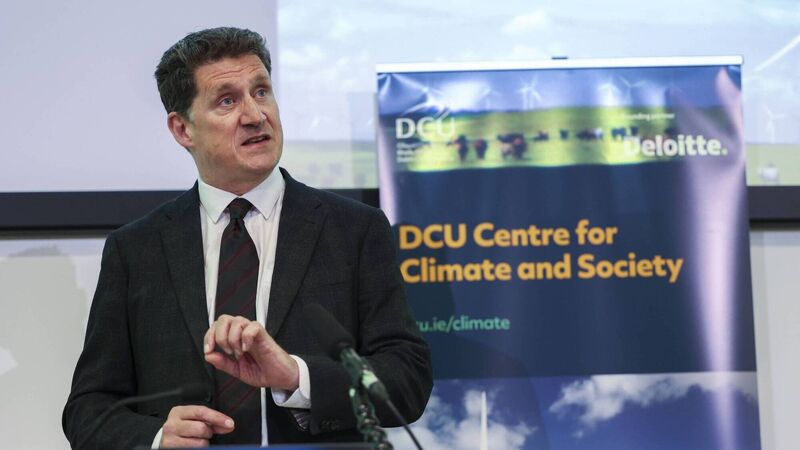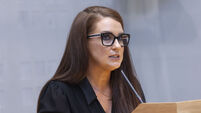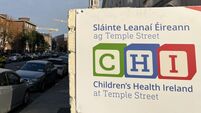Review of land use 'most important project in programme for government'

Environment Minister Eamon Ryan giving the afternoon keynote address at the DCU Centre for Climate and Society annual conference. Addressing climate change 'will not work if it's a politics of division', said Mr Ryan. Picture: Kyran O’Brien/DCU Communications Department
The current review of land use in Ireland is the "most important project within the programme for government", according to Environment Minister Eamon Ryan.
Speaking at the annual Dublin City University (DCU) Centre for Climate and Society conference, Mr Ryan, as one of two keynote speakers, told 300 attendees that the land use review commitment is "such a sensitive issue, we couldn't even call it a land use plan, for fear that someone might think that we were telling farmers what to do".
Phase I of the land use review provides an evidence base to determine the environmental, ecological, and economic characteristics of land types across Ireland, according to the Government.
One of the key messages throughout the conference is that Ireland and the world are in the midst of a biodiversity crisis that is separate but intrinsically linked to the climate crisis. Despite the ecological disaster, biodiversity does not command as much attention as climate change, various speakers told attendees.
Mr Ryan said framing climate action as a fight between rural and urban people is wrong.
"We have to get the framing of this right. How we discuss it, how we present it... How we tell the story, how we listen to each other and share perspectives. How we need to be willing to admit mistakes, and go back and accelerate in the direction we need to go.”
Addressing climate change “will not work if it's a politics of division, if it's a politics of rural Ireland versus urban Ireland, young versus old, left versus right", he added.
Farmers will be at the frontline in the climate and biodiversity action revolution, he claimed.
He called out companies making big profits, specifically Kerry Group, saying that "they need to pay farmers more".
Mr Ryan was repeatedly interrupted by a lone protester who questioned his sincerity in tackling environmental issues, claiming that the likes of cement and fossil fuel firms are being given preferential treatment in spite of Green Party pledges in the past.
Opening the conference, DCU president Daire Keogh said universities have much to contribute to turning the tide on climate change and biodiversity loss.
"The planet is on fire, and we can't be ignorant to that. We can't ignore our responsibilities," he said.
Business leaders must step up, said Deloitte director of sustainability risk Marc Aboud.
"While the business community has recognised the need to take climate action, the journey must be accelerated and collaboration across sectors, industries, and in broader society is essential to driving change," he said.
"The climate crisis cannot be addressed without nature and biodiversity."
Meanwhile, the Government announced the approval of the country's first clean air strategy, aimed at reducing harm from pollution that causes more than 1,400 premature deaths every year.
The strategy commits Ireland to achieving new World Health Organization guideline values for air quality by 2040, with progress to be measured against interim targets by 2026 and 2030.
CLIMATE & SUSTAINABILITY HUB





